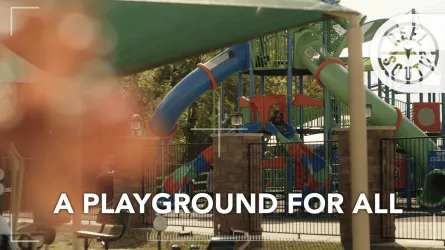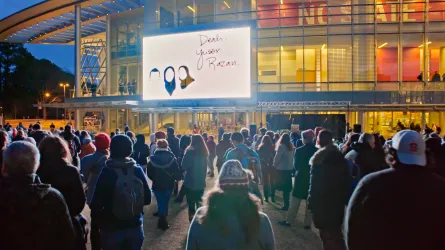Much of America’s rich history is being lost to time. Brad Bennett's film "Unmarked" tracks the preservation of African-American gravesites and burial grounds for enslaved persons in the South, which have been disappearing over the years. In Virginia alone, stories of thousands at rest could vanish from history altogether if these locations are not restored. Those with personal connections to these burial sites have begun to uncover and maintain locations across the state, but there is much work to be done. "Unmarked" explores these untold stories and the efforts underway to preserve them. Get insight into the film in our filmmaker interview with Brad Bennett below.
The interview has been edited and shorted for clarity.
What inspired you to make your film?
I've always had an interest in history and particularly the stories and histories surrounding the American South. Specifically, African-American histories which are often overlooked or hidden for centuries. I and co-director Chris Haley wanted to put a lens on neglected black cemeteries across the South, and why they matter today.
How did you get connected to your subject?
I first heard about a historic African-American cemetery in Richmond where only a few years ago descendants virtually couldn't pay respects to their loved ones buried there, due to a labyrinth of overgrown brush and vines. We quickly got in touch with volunteers and descendant families, to document their family stories and clean up and preservation efforts.
Were there any parts you wish you could have included in the film? If so what were they?
There were many interesting and deserving storylines that didn't make the final cut. We wanted to touch more on the injustices of land developments over documented slave burial sites, but sadly you can tell but so much of the story in a broadcast length.
Were there parts with very interesting backstories that weren't totally relayed in the final film? Or what was your favorite behind-the-scenes moment?
We visited Sweet Briar College many times during the filming of "Unmarked," there is a tribute site on school grounds to the enslaved communities that labored there when the college was a plantation, previously. Just to be filming among the sites where enslaved individuals were buried was a harrowing yet peaceful experience knowing what those folks endured in their lifetime.
What do you hope people learn/hope they take away from your film?
We hope viewers gain a better sense of self-learning how others historically laid the path forward for their future benefit. Also, perhaps inspiring others to seek the origins of their own family history.
Is there anything else you'd like to share with the Reel South audience?
I love being a filmmaker in the South. This is home for me and many others. We don't have many resources at our disposal but we have a rich history with thriving communities and cultures.
What advice would you give other filmmakers or others interested in documentary film?
If there is a story you want to tell, don't hesitate, pursue your curiosities, but be conscience and use ethical approaches, and communicate your intentions to the communities and subjects you're documenting.
Can you complete this sentence: "What defines you..."
What defines you from the past.
Category
Share


